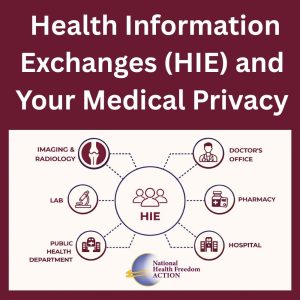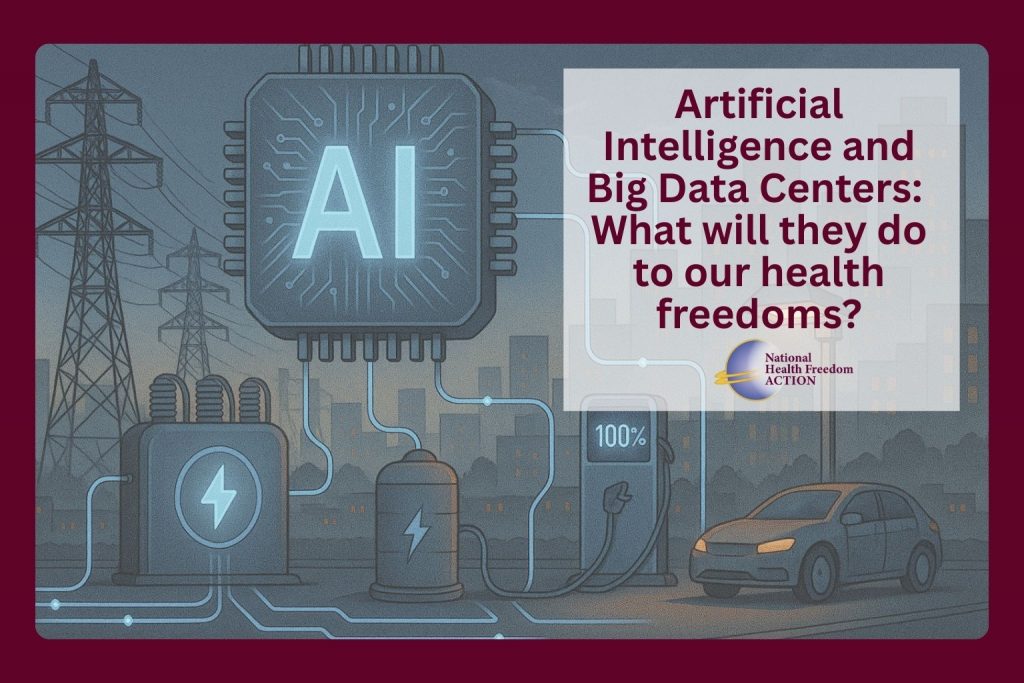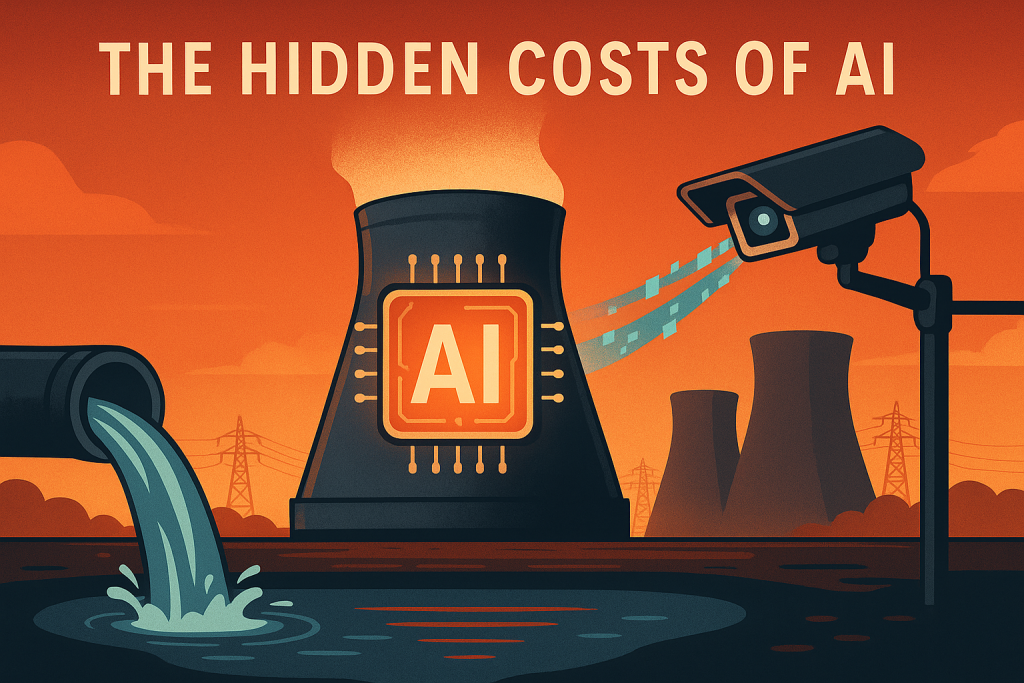

We all have to admit that artificial intelligence (AI) is impressive: an AI intelligence can beat world champion chess players now with predictable regularity. It can intelligently (usually) answer questions that would be posed to a college student in a math, science or history homework exercise, prompting the student to conclude that the AI resource knows all the “right” answers, and that human intelligence is just needed as a sort of backstop to catch it when it occasionally goes astray. AI is machine operation that goes beyond massive storage of data and data retrieval. We ask here whether AI truly holds a promise of improving our lives for the benefit of all, and also whether it will be used, as so many other tools have been over the millennia, to interfere with our basic human rights. Health freedom involves the ability to follow the journey that we choose with regard to our health. How will these AI data centers affect our health freedoms?
The increasing usage of AI everywhere serves to increase its acceptance
AI is everywhere now, and it has already inserted itself into our lives, without the public requesting it. Yahoo email, for example, now summarizes every email with AI so that you don’t have to read the whole email, even when you have not asked for this use. Little popup windows open online, luring you in to try out AI. We are told we need it for any number of uses, from our doctors who need it as super-powerful diagnostic tools, to better GPS, and for our military to protect us from cyber-attacks. But what is little discussed is how AI could affect our well-being.
Energy requirements are massive and proposed solutions raise new questions
What about the energy needed for AI? Data centers are sprouting up and many more are planned. An AI-centered economy is portrayed as “the promised land,” but in order to reach that promised land we have to build massive data centers in many parts of the country so as to collect the massive amount of data—published science, news reports, personal communications, and other data that is constantly being generated. The electricity required for operating such data centers is enormous and until new power plants are built, rolling blackouts are predicted for parts of the population. What happens when the populations are told they need to limit air conditioning on a hot day while energy is routed to cool the AI center?
Currently, a regular data center uses as much electricity as 100,000 houses. But the new data centers will use 20 times as much, an equivalent to adding 2 million homes to the grid. One of the plans is to build nuclear power plants to keep up with the energy needs of the new data centers. The United States in the past decades has backed away from nuclear energy, as issues with storage, disposal, and the hazards of radioactive waste have not been solved. The disaster at Fukushima in 2011 showed the world how just one nuclear power plant leaking could contaminate the ocean and the area around the plant. The plant at Fukushima is still being monitored and is still releasing radioactive material today. What new technology is there to contain nuclear waste and protect nuclear power plants from meltdowns? In whose backyard will the massive amounts of nuclear waste be stored since we still have not solved the problem of safe long-term nuclear waste storage?

Water is basic to human health and life, and it is already a scarce resource in many places
We are also told that massive quantities of water will be needed to cool the data storage facilities, which then evaporates, putting those needs into conflict with the needs of farmers, large and small, indigenous communities, and water-hungry towns and cities. In 2024, experts projected that AI water usage could hit 6.6 billion cubic meters by 2027. Recently residents of Texas were asked to skip showers to conserve water, when Texas AI centers were using millions of gallons of fresh water. Amounts of water used will develop quickly; projections just for the state of Texas are for nearly 400 billion gallons by 2030.
Our bodies are made up of 60% water; it is essential to life and health. The Constitution does not specifically mention the right to clean water. But our unalienable rights, the rights that are ours because we exist, are mentioned in the Preamble to the Declaration of Independence as “Life, Liberty and the pursuit of Happiness.” These fundamental rights would include a right of access to water. The government mirrors this through various laws such as the Clean Water Act and the Safe Drinking Water Act. Access to good water is a cornerstone of our health freedom. Antonio Guterres, UN Secretary General said at the UN Water Conference that, “Water is a human right and the common development denominator to shape a better future. But water is in deep trouble.”
AI and the related data centers could be a tool for greater surveillance to aid mandates and lock downs
AI is used to gather massive quantities of data on people without the need for a larger workforce. AI can use tools like facial recognition to keep people “safe.” The danger is that authoritarian governments will use AI to control the public; indeed, greater surveillance is commonly used by authoritarian governments to suppress civil disobedience and to erode democracy. Whether it is personal data from our social media use, information from cameras on the street, or information about our electrical use from the smart meters on every building, the ability that our government has to monitor our private living habits will increase in a very Orwellian style. What information will be kept in these centers? Will the government track who buys raw milk? Who visits a homeopath or other natural healer? During the COVID-19 Pandemic, governments used the threat of a public health emergency to effectively lock down the public and force unproven medical products in the form of vaccines. A hotline was even created in Minnesota to facilitate neighbor reporting neighbors for not wearing masks. The massive easy surveillance available through AI will be a boon for any government interested in mandates and lock downs.
AI is here and it is here to stay. A moratorium on state regulation of AI was defeated federally in July, 2025. Bills have been introduced to limit and regulate AI in all 50 states. Delaying the build-out of new data centers will allow input and planning for water and energy use and provide time to address other issues inherent in the rollout of AI. We can speak up and request a moratorium on new data centers!
RECENT NEWS


National Health Freedom Action: 2025 Year in Review
December 18, 2025

Top Health Freedom Highlights of 2025
December 11, 2025

Hospital Consent Forms and Health Freedom
December 4, 2025
